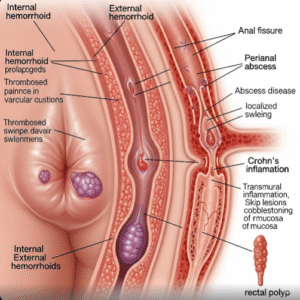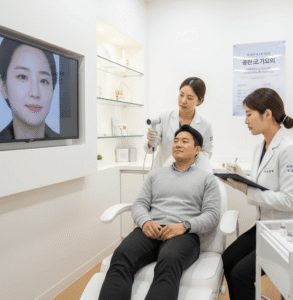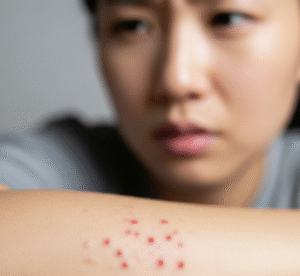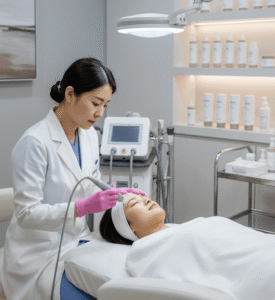Overview
Huntington’s disease (HD) is a rare, inherited neurodegenerative disorder that progressively affects movement, cognition, and behavior. It is caused by a genetic mutation in the HTT gene, leading to abnormal protein buildup that damages brain cells over time. In Korea, while HD is relatively rare compared to Western populations, cases are diagnosed and managed in specialized neurology and genetic clinics. With advancements in genetic testing and multidisciplinary care, Korean hospitals provide comprehensive support for patients and families affected by this lifelong condition.
What is Huntington’s Disease?
Huntington’s disease is an autosomal dominant disorder, meaning a child has a 50% chance of inheriting the mutation if one parent carries it. Symptoms usually begin between ages 30–50, but juvenile HD can appear in childhood or adolescence. The disease gradually worsens, leading to severe physical and mental disability.
Symptoms
- Movement symptoms (motor dysfunction):
- Involuntary jerking or writhing movements (chorea)
- Muscle problems such as rigidity or dystonia
- Impaired balance, gait disturbances
- Difficulty with speech and swallowing
- Cognitive symptoms:
- Difficulty organizing or focusing on tasks
- Memory decline
- Poor judgment and impaired learning
- Progression to dementia
- Psychiatric symptoms:
- Depression, irritability, or apathy
- Anxiety and mood swings
- Obsessive-compulsive behaviors
- Aggression or social withdrawal
Causes
- Mutation in the HTT gene on chromosome 4
- Abnormal repetition of CAG trinucleotide sequences leading to toxic protein buildup
- Family inheritance is the only known cause
Risk Factors
- Family history of Huntington’s disease
- Inherited genetic mutation (autosomal dominant pattern)
Complications
- Severe physical disability requiring full-time care
- Difficulty eating and swallowing → malnutrition and aspiration pneumonia
- Progressive dementia and loss of independence
- Increased risk of suicide or psychiatric complications
- Shortened life expectancy (average survival: 15–20 years after symptom onset)
Prevention
There is no way to prevent Huntington’s disease since it is purely genetic. However:
- Genetic counseling in Korea helps families understand risks before pregnancy.
- Prenatal testing or preimplantation genetic diagnosis (PGD) may be offered to families with HD history.
Treatment Options in Korea
Although there is no cure for Huntington’s disease, Korean hospitals focus on symptom management, quality of life, and family support through a multidisciplinary approach.
Diagnosis
- Genetic testing (to confirm HTT mutation)
- Neurological exams for movement and cognitive assessment
- Brain imaging (MRI, CT) to assess brain structure changes
Medical Treatments
- Movement symptoms:
- Tetrabenazine or deutetrabenazine to reduce chorea
- Antipsychotics (olanzapine, risperidone) to help with movement and psychiatric issues
- Psychiatric symptoms:
- Antidepressants (SSRIs) for depression and anxiety
- Mood stabilizers for irritability or mood swings
- Supportive care:
- Physical therapy to improve mobility and balance
- Speech therapy for swallowing and communication
- Nutritional support to prevent malnutrition
Rehabilitation and Support
- Long-term neurological care at Seoul National University Hospital, Asan Medical Center, and Samsung Medical Center
- Community-based rehabilitation centers for physical and occupational therapy
- Family counseling and psychological support programs
Research & Clinical Trials in Korea
Korean researchers are actively studying gene therapy, stem cell therapy, and disease-modifying drugs to slow disease progression. Patients may have opportunities to participate in international clinical trials.












